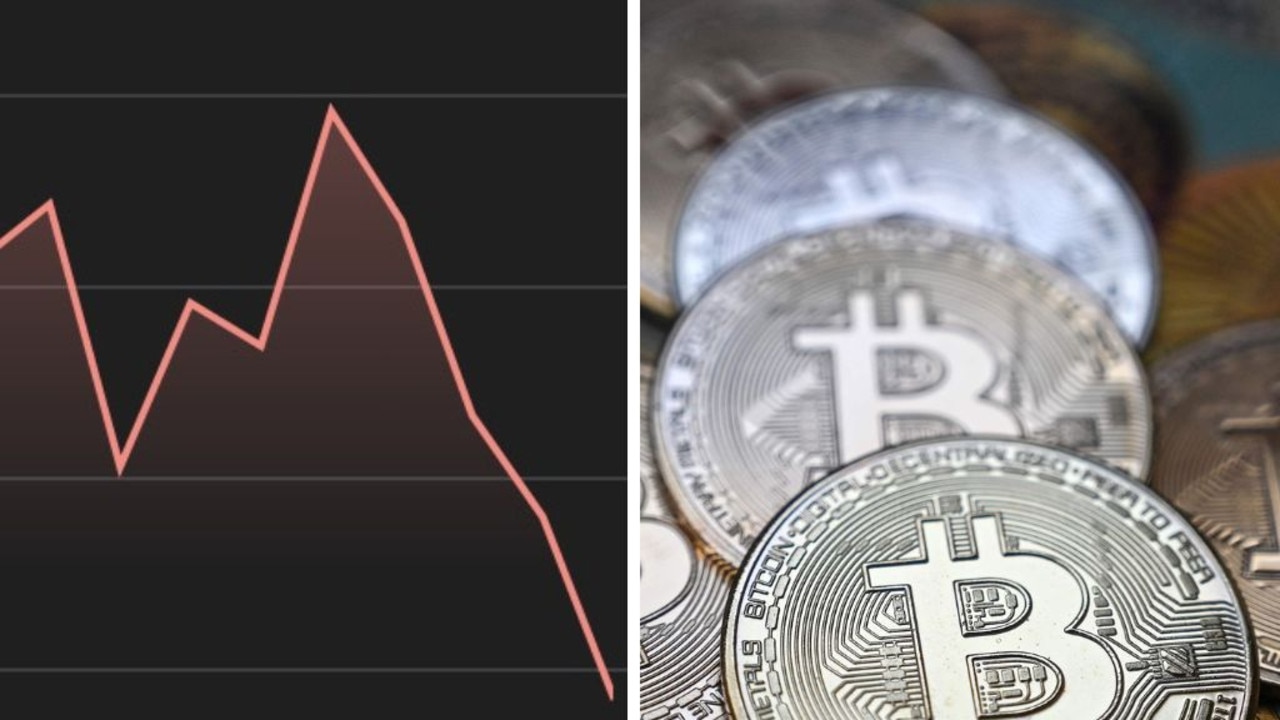Credit Suisse, First Republic Bank’s stock prices continue to plunge following collapse of multiple banks
The bank shares bloodbath has continued into the weekend, just days after three major banks collapsed in quick succession.
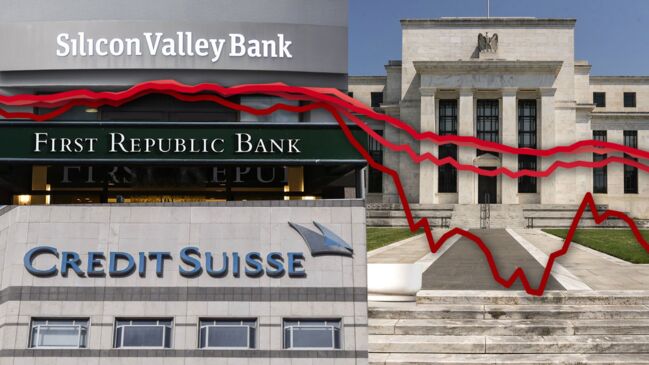
Markets
Don't miss out on the headlines from Markets. Followed categories will be added to My News.
The bank shares bloodbath has continued into the weekend despite regulators and other banks trying to restore confidence in the sector.
Bank share prices still remain low as panicked sell-offs tack place across European and US stock markets.
The FTSE 100 closed one per cent lower than the previous day while the Dow Jones index fell 1.2 per cent.
Embattled Swiss investment banker Credit Suisse dropped eight per cent overnight, just hours after announcing it had secured a US$75 million line of credit.
And US-based First Republic Bank dropped by even more, plunging 33 per cent, even though it secured $US30 billion ($A45 billion) in deposits from other banks trying to help with its liquidity crunch.
It comes just a week since three banks toppled in quick succession, sending the sector into meltdown.
Since last Friday, three American banks have collapsed – Silvergate Capital, Silicon Valley Bank (SVB) and Signature Bank.
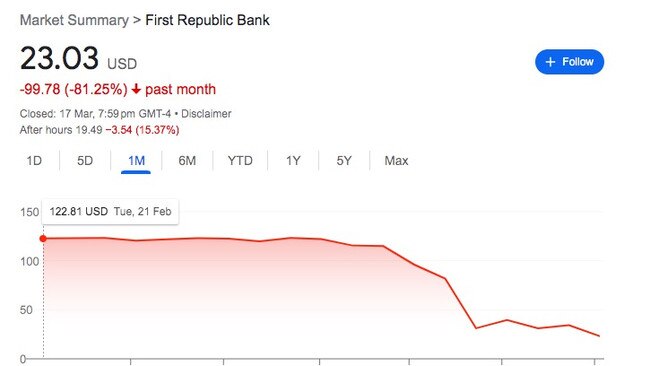
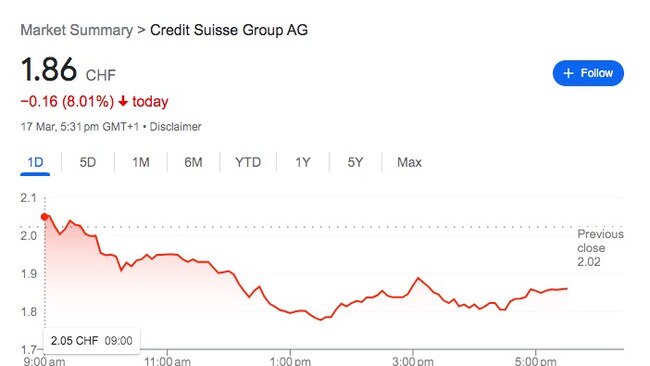
The banking ‘contagion’ is in part because of cumulative interest rate rises, which has drastically reduced the yields on treasury bonds, bringing many banks to their knees. Banks like Credit Suisse were forced to sell bonds at a loss.
Last year, Credit Suisse, the world’s seventh largest investment bank, reported an $8 billion loss for 2022.
Confidence in the investment bank took a further hit when it admitted to a “material weakness” in its financial reporting
Trading in Credit Suisse was suspended several times this week as the stock plummeted and its biggest shareholder — the Saudi National Bank — publicly stated it would not deposit any more money into the lender for fears of collapse.
Stocks in the Swiss bank fell to 1.68 Swiss francs ($A2.71) on Thursday – the lowest price in its history.
On Thursday night, Credit Suisse announced it had the capacity to borrow up to 50 billion Swiss francs ($A80 billion) from the Swiss National Bank.
This was a lifeline the country’s central bank offered the flagging investment firm.
Credit Suisse also said it would buy back some of its own debt.
Despite that, its share price remained stubbornly low.
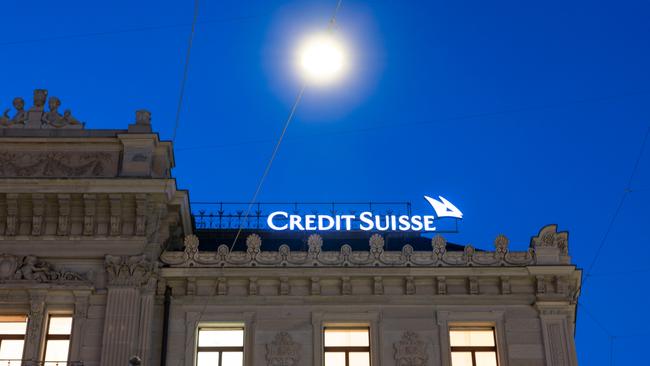
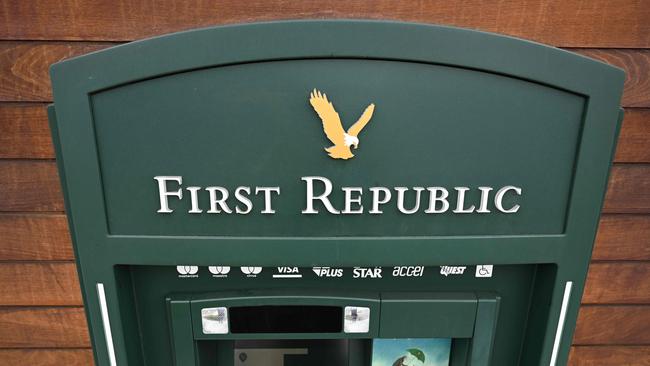
At the same time, First Republic Bank, with head quarters in San Francisco in the US, has also been massacred on the stock market.
On Tuesday, news.com.au reported that another bank, First Republic Bank, appeared on shaky ground, with its shares tanking drastically, amid revelations that it had needed to draw on some cash reserves to prop itself up.
Its shares fell by 61.8 per cent in a single day on Tuesday.
But on Thursday, federal US regulators and the Treasury Department said in a joint statement that 11 banks had stepped in to aid the flailing First Republic Bank.
JPMorgan Chase & Co, Citigroup Inc, Bank of America Corp and Wells Fargo & Co are reportedly in talks to deposit $US5 billion ($A7.5 billion) each into First Republic Bank, according to Dow Jones.
The smaller banks, like Morgan Stanley and Goldman Sachs Group Inc., as well as regional banks US Bancorp, PNC Financial Services Group Inc and Truist Financial Corp, are putting in smaller amounts.
First Republic Bank’s stock price was briefly in the green, up almost 10 per cent compared to the previous day, as the announcement buoyed investors’ hopes.
But this optimism didn’t last, with a 33 per cent plunge in 24 hours rocking the company.
Originally published as Credit Suisse, First Republic Bank’s stock prices continue to plunge following collapse of multiple banks




